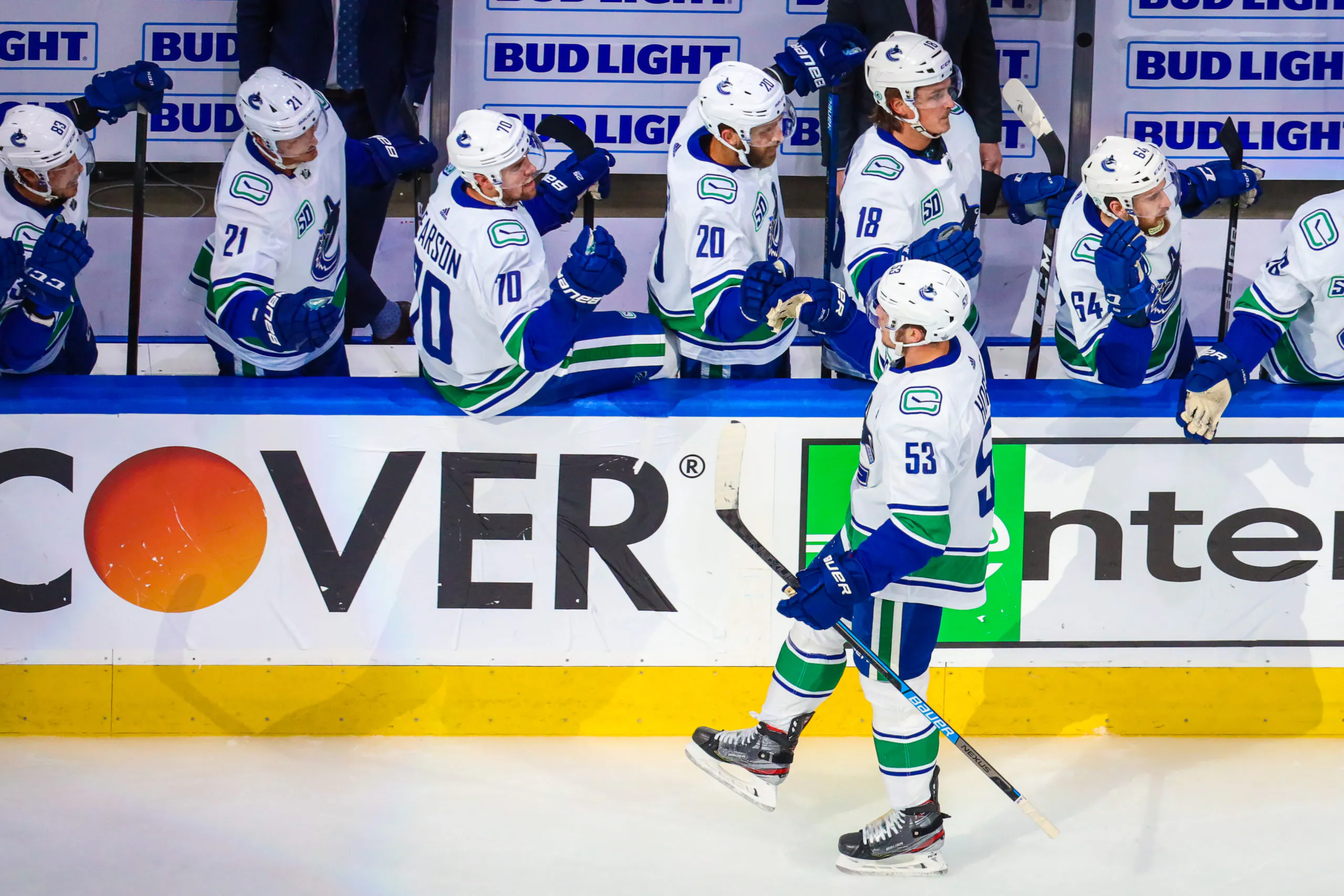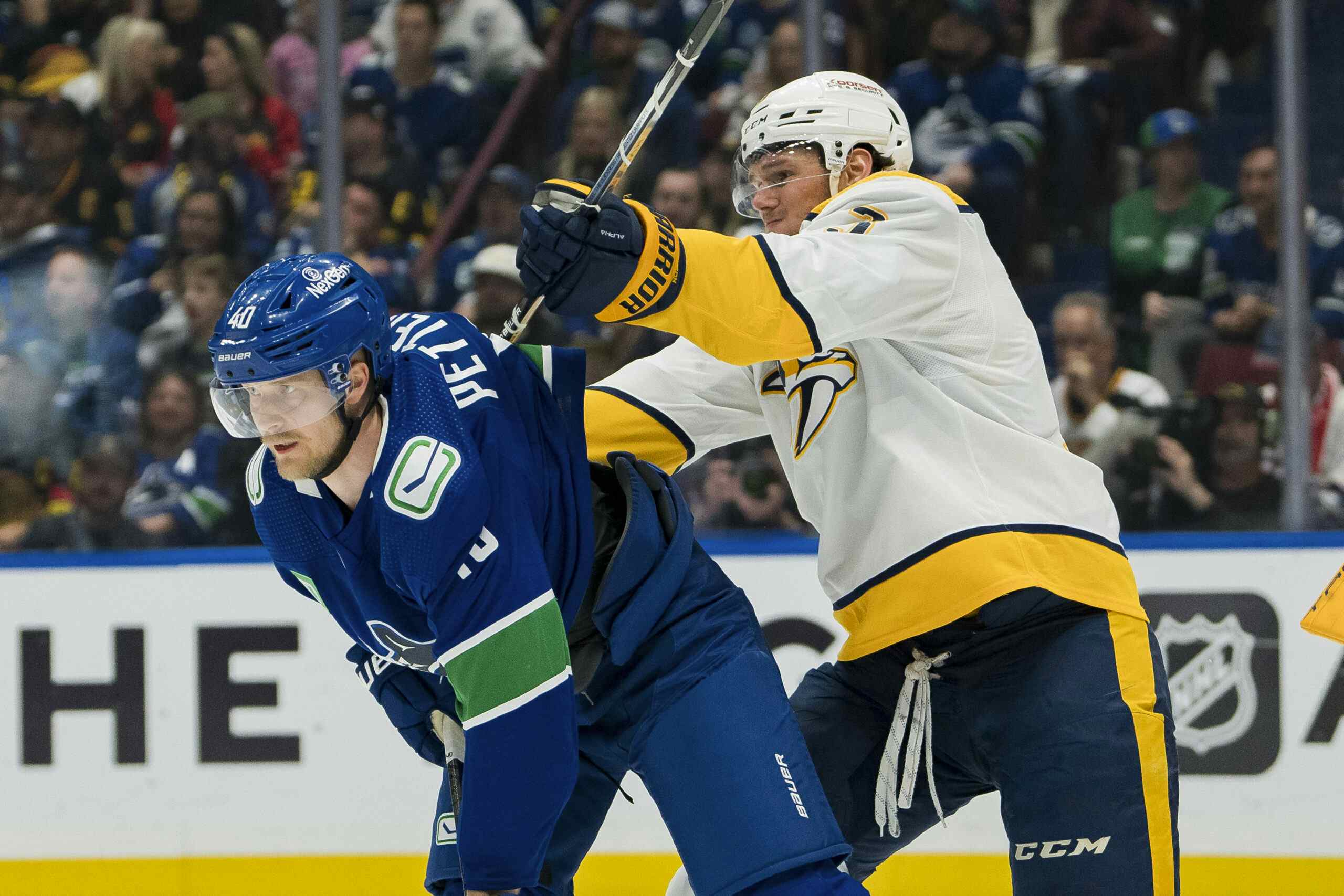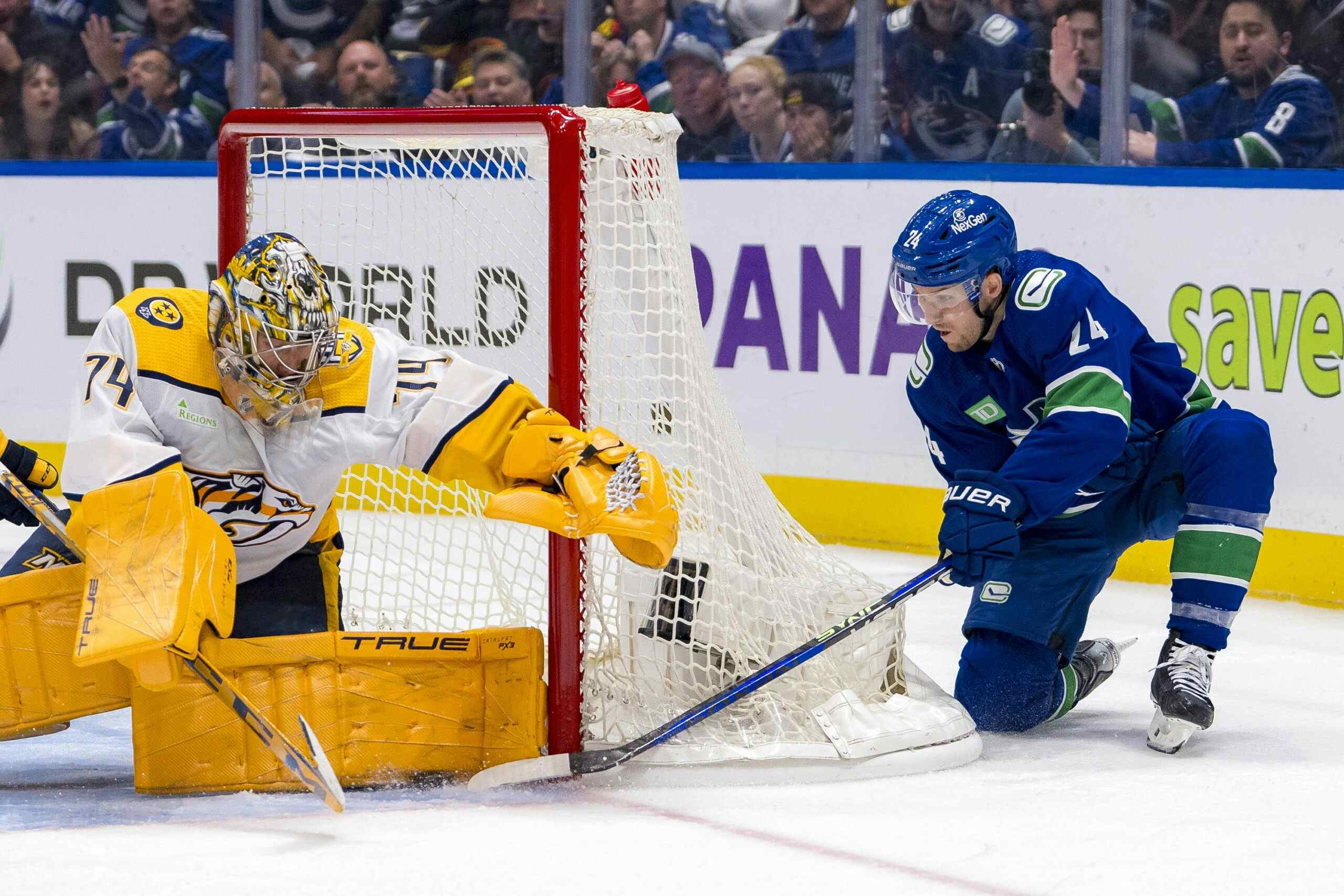Playoff Fallacies

While hockey is littered with bad takes throughout the regular season, bad ideas get even more traction during the playoffs. Through a lethal combination of heightened emotions and small sample size, the playoffs become a breeding ground of bad ideas.
To combat the bad takes, I’ve assembled a list of five common playoff fallacies.
1) Understating luck: small sample size narratives
Underlying most of our playoff fallacies is our longing for cohesion.
My piece on Jim Benning described the prominence of luck in driving hockey outcomes. This creates an important consideration come playoff time, because activities with increased luck require a larger sample size to measure the skill of the actors. Because the playoffs occur over a small sample, the best team doesn’t always win.
The problem is that human beings hate luck because it’s inexplicable. In a primitive environment, deducing cause from effect is a significant advantage on almost every front. Those with a highly developed causal deduction system win-out over time, leaving humans today incredibly acute at finding causal relationships.
Most are aware that the brain is divided in half. Among other things, the right side is responsible for spatial tasks while the left is responsible for language and deduction. The two halves are connected by a bridge of nerve tissue called the corpus callosum, enabling communication.
In the 1970s, neuroscientist Michael Gazzaniga studied patients whose brains had been severed for seizure treatments. By feeding information to only the left eye, he instructed the patient’s right brain to execute an action. Unable to communicate with the other half, the left brain was forced to observe. When the patient had executed the action, the researchers pressed for causality.
Gazzaniga found that the left brain jumped to deductions even though it hadn’t been given the reasons for the corresponding action. In one example, a patient is told to stand up. When asked, the patient explains that he stood up because he needed to stretch. In another example, researchers ask a patient to laugh, and the patient explains that the researchers are funny guys.
To this end, instead of simply observing luck, we’re prone to giving it ridiculous explanations. Ideas like “hard to play against”, “gaining experience”, or “wanting it” aren’t far removed from the “hockey gods” as methodologies of explaining randomness. It’s much easier to theorize that playoff failures of year’s past gave the Washington Capitals enough experience to win the cup than to say that Cam Atkinson shot a puck an inch too high in overtime.
2) Overweighting luck: “anything can happen in the playoffs”
A second subset of commentary decides to approach explaining the playoffs by behaving as if skill doesn’t matter.
In 2011, Alain Vigneault was asked about “the President’s Trophy curse”, or namely the idea that the President’s Trophy winners only win the Stanley Cup 30% of the time.
Vigneault may have been versed in statistics because he acutely responded “30%? I like those odds.”
Devoid of nuance, there is a tendency to assume that because the playoffs have luck involved, they’re completely random. This isn’t true. The NHL playoffs are still closer to poker than they are to Lotto 649.
Luck’s role in the equation is pushing the odds closer than they may otherwise be. This is enabled by the relatively close skill of the actors and lack of set-patterns. If my beer-league team enters the playoffs, no “luck” is pushing us over the top.
The sample is usually large enough as the playoffs grow longer to separate extreme differences in skill. The team that wins isn’t always the best team, but it is often a very good team.
Commentators of the “it’s all luck” view behave as if any team entering the picture have a chance. A 5% chance is indeed a chance, but the retrospective realization of that outcome doesn’t change the prospective odds. Just because the playoffs are extremely luck-based doesn’t mean skill no longer matters.
3) The big moment hero
The outcome of playoff games is sometimes the result of a “big event”, such as a last-second goal or overtime hero. It’s cool, and it presents an instant in which most of us feel immediate relief. The problem is that it’s significantly overvalued.
We ignore the fact that without earlier contributions, we don’t get to the big moment. Ovechkin may lack the “clutch gene”, but without Ovechkin, the Capitals may not have been in a position to realize the “clutch gene” in the first place.
We also significantly overvalue the “moment-man”. Commentators love to point out that the average goal-scorer in the big moments is a depth player, and that “anyone can be a hero” in the playoffs.
This ignores the statistical fact that the probability of a star scoring a given goal is relatively low. JT Miller, Brock Boeser, Elias Pettersson, Bo Horvat, and Quinn Hughes cumulatively scored about 45% of the Canucks’ goals this season. The “moment-man” is most likely to be someone else to begin with.
Should Chris Tanev return, the Canucks should act with more prudence now that he’s a noted moment-man. Not less.
4) The little things that don’t matter
In describing why a team is generating success, commentators readily trumpet on-ice contributions that had no impact on the final result. This builds on the first and third fallacies. The first because we make causality where none exists, and the third because we often execute this when the actions are immediately obvious.
The favored actions to “explain” winners come playoff time are faceoff wins, shot-blocks and hits. It’s this fallacy that forces commentators to ignore a smooth breakout pass, while applauding Antoine Roussel’s violence.
Yes, it is entirely possible that the winning team outhit an opponent, but this fact does not necessarily mean the hits caused the win.
Commentators also tend to incorrectly ascribe the reasons a correlation exists. In the most common example, commentators go “it is absolutely critical to get that first one. The momentum shifts, and the record of the team scoring first is 300-5-1.”
Yes, the team with the lead has the highest probability of winning.
5) Ignoring matchup samples: team A beats team B, team B beats team C, but team C beats team A
Another reason to avoid making conclusions on the playoffs is the small sample size of stylistic matchups.
Most would agree that the best team is the one that could play the entire NHL and show the best record. However, there are certain teams stylistically constructed in a way that allows them to beat specific opponents. Should the best average team run into an Achilles-heel opponent multiple times, conclusions are drawn like “they just can’t make it in the playoffs”
Results aren’t constant. As the title suggests, there are common instances in which team A can beat team B, team B can beat team C, but team C can beat team A. To this end, it becomes easy to say that a team “can’t get in done” in the playoffs when in reality, they just kept running into a poor stylistic match.
Conclusion
With all this in mind, enjoy the playoffs, but don’t take them too seriously. Avoid sweeping conclusion like “Jay Beagle scored that MASSIVE overtime winner! The contract is worth it now!”
Here’s a rule of thumb – without lots of clear, obvious, evidence, avoid making positive or negative conclusions about a team from only playoff action.
Recent articles from Inglourious Capital





